Search Definitions
Browse Content (p. 119)

Definition
Walpurgis Night
Walpurgis Night (30 April, annually) is a modern-day European and Scandinavian festival derived from the merging of the ancient pagan celebration of Beltane with the commemoration of the canonization of the Christian Saint Walpurga (l. c...

Definition
Lady Jane Grey
Lady Jane Grey (1537-1554 CE) was briefly declared Queen of England for nine days in July 1553 CE following the death of her cousin Edward VI of England (r. 1547-1553 CE). Then only 16 and never officially crowned, Lady Jane was first an...
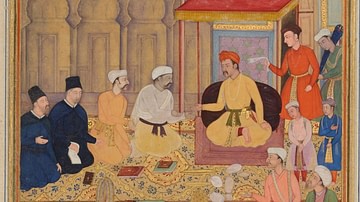
Definition
Ibadat Khana
The House of Worship or the Ibadat Khana was established by Mughal Emperor Akbar (1542-1605 CE) for conducting religious debates and discussions among theologians and professors of different religions. Abu'l-Fath Jalal-ud-din Muhammad Akbar...
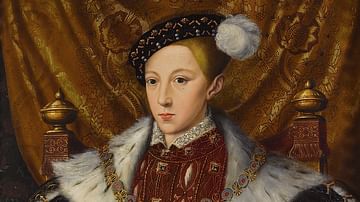
Definition
Edward VI of England
Edward VI of England reigned as king from 1547 to 1553 CE. Succeeding his father Henry VIII of England (r. 1509-1547 CE), Edward was only nine years old at the time and so the kingdom was ruled by a council of nobles, foremost among whom...

Definition
Sir Thomas More
Sir Thomas More (1478-1535 CE) was a lawyer, scholar, statesman, and Lord Chancellor to Henry VIII of England (r. 1509-1547 CE) who was executed in July 1535 CE for his refusal to endorse Henry's break of the Church in England from the Catholic...

Definition
Gisela of France
Gisela of France was a legendary 10th-century CE Francian princess, who, according to tradition, was married off to Viking leader Rollo of Normandy. Her name, Gisela or Gisla, comes from an Old German word meaning "to pledge", the French...

Definition
Anne Boleyn
Anne Boleyn (c. 1501-1536) was the second wife of Henry VIII of England (r. 1509-1547). Anne, sometimes known as 'Anne of a Thousand Days' in reference to her short reign as queen, was accused of adultery and executed in the Tower of London...
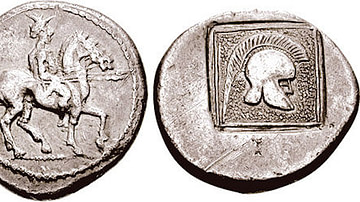
Definition
Alexander I the Philhellene
Alexander I of Macedon, also known as Alexander I the Philhellene ('friend of the Greeks') or 'The Wealthy', was king of ancient Macedon from around 498 to 454 BCE. He is known for the role he played in the second Persian invasion of Greece...
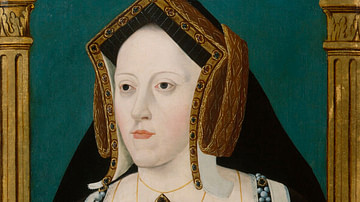
Definition
Catherine of Aragon
Catherine of Aragon (1485-1536 CE) was a Spanish princess who famously became the Queen of England and the first wife of Henry VIII of England (r. 1509-1547 CE). When the marriage did not produce a male heir, Henry VIII became desperate to...
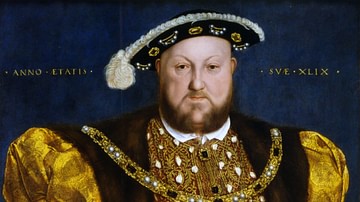
Definition
Henry VIII of England
Henry VIII of England ruled as king from 1509 to 1547. The second Tudor king after his father Henry VII of England (r. 1485-1509), Henry had inherited a kingdom which enjoyed both unity and sound finances. Famous for his six wives as he searched...